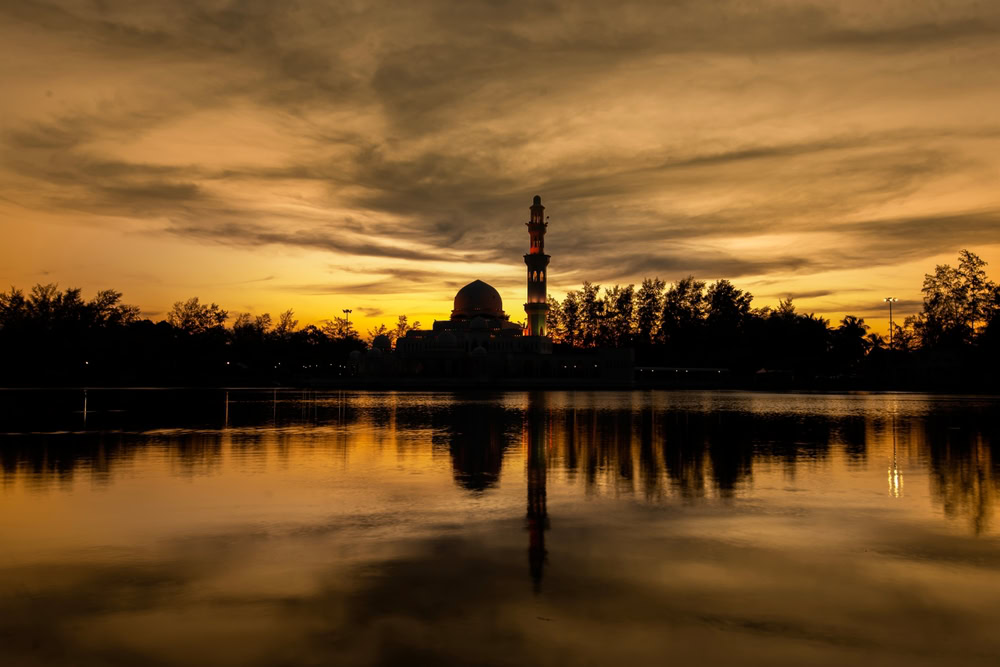What’s the Ruling for Eating before Sunset in Ramadan by Mistake?
Answered by Shaykh Bassem Itani
Question
What is the ruling on someone who eats or drinks before sunset in Ramadan, thinking it is already sunset?
Answer
All praise is due to Allah, Lord of the worlds, and blessings and peace be upon our master Muhammad, his Family, and all his Companions.
If someone eats or drinks before sunset in Ramadan, thinking it is already sunset, their fast is invalidated. They must abstain for the rest of the day and make it up later. However, there is no expiation required.
The fast is invalidated because they ate or drank during a time when it is obligatory to abstain from food and drink. They must maintain this abstinence until sunset. Since they violated this, their fast is invalidated, even if they thought it was sunset. This occurred during the life of the Prophet (Allah bless him and give him peace). It is reported that the companions broke their fast on a cloudy day during the Prophet’s time (Allah bless him and give him peace), and then the sun appeared. They were commanded to make up the fast. [Bukhari]
Abstaing for the Rest of the Day
Why must they abstain for the rest of the day, and why is there no expiation required?
They must abstain for the remainder of the day because if they eat or drink without a valid excuse, people might accuse them of wrongdoing/sin. Avoiding situations that could lead to such accusations is obligatory. [‘Ayni, al-Binaya Sharh al-Hidaya]
A hadith narrated by Safiyya bint Huyay says: The Prophet (Allah bless him and give him peace) was in I‘tikaf (Spiritual Retreat), so I came to visit him at night. After speaking with him, I got up to leave, and he got up with me to see me out. His dwelling was in the house of Usama Ibn Zaid. As we were walking, two men from the Ansar passed by and, upon seeing the Prophet (Allah bless him and give him peace), hastened their pace. The Prophet (Allah bless him and give him peace) said, “On your way; she is Safiyya bint Huyay.” They said, “SubhanAllah (Glory be to Allah), O Messenger of Allah.” The Prophet (Allah bless him and give him peace) said, “Indeed, Satan flows through the human being like blood, and I feared that he might throw something evil or harmful into your hearts.” [Bukhari]
The Prophet (Allah bless him and give him peace) preempted any doubt or suspicion from Satan toward them by informing them that the woman with him was his wife, Safiyya (Allah be pleased with her). This teaches the umma to avoid any situation that might lead to accusation so that Muslims do not find themselves in a position of suspicion or follow paths that might lead to accusation.
No Expiation
There is no expiation required for him because he did not intend to break the fast deliberately. Making expiation obligatory for him would be undue hardship, and since he assumed it was sunset, and it turned out otherwise, he should have verified it. Thus, his case is considered a mistake, and for someone in such a situation, there is neither expiation nor sin upon them. Allah the (Most High) says, “There is no blame on you for what you do by mistake.” [Quran, 33:5]
In our era, this issue may become rare and uncommon, as people today abstain from eating and drinking from dawn and break their fast at sunset through the timing of prayer times for each country determined by the religious endowments department or accredited Islamic centers, using watches, mobile phones, computers, or other means. Assuming there was a mistake due to a malfunction in a watch like the time being set ahead or assuming it was sunset at seven o’clock when it actually was at seven fifteen, or similar errors, the ruling remains the same as the aforementioned case: he must abstain for the remainder of his day, he owes the fast, and there is neither expiation nor sin upon him.
Lastly; a Muslim must verify the times for their eating and drinking at sunset and dawn to avoid such mistakes that invalidate the fast.
And Allah is the Guide to the right path.
[Shaykh] Bassem Itani.
Shaykh Dr. Bassem Hussayn Itani was born in Beirut, Lebanon, in 1965. He earned his Ph.D. in Islamic Studies in 2005. Among his mentors were Shaykh Muhammad Taha Sukkar, Shaykh Adib al-Kallas, Shaykh Mulla Abdul ‘Alim al-Zinki, Shaykh Abdul Rahman al-Shaghouri, Shaykh Abdul Razzaq al-Halabi, Shaykh Dr. Mustafa Dib al-Bugha, Shaykh Dr. Wahba al-Zuhayli, Dr. Muhammad al-Zuhayli, and others, may Allah have mercy on them all.
Shaykh Itani has a rich background in both academic and administrative fields. He has held significant positions in many governmental and non-governmental institutions in Lebanon and abroad. This includes his role as a member of the Academic Committee at SeekersGuidance and a senior teacher with the free online global seminary.
From 2020 to 2021, he served as the Dean of the College of Da‘wa – University for Islamic Studies (Lebanon) – Postgraduate Studies. He was the Director of Dar Iqra for Islamic Sciences from 1998 to 2018. Shaykh Itani is a well-versed teacher in several academic subjects, including Fiqh, Usul, Aqida, and Tafsir. He has supervised and examined numerous Master’s and Doctoral theses at various universities and colleges in Lebanon.
His contributions to Islamic sciences are also evident in his writings and research. His notable works include “The Relied-upon Statements of Imam Zufar in the Hanafi School,” “Collective Ijtihad: The Sublimity of Thought in the 21st Century,” and “Custom and its Impact in Islamic Jurisprudence.” Shaykh Itani has actively participated in numerous scientific conferences and seminars, both in Lebanon and internationally. He is linguistically adept, excelling in Arabic, proficient in French, and comfortably conversant in English.
